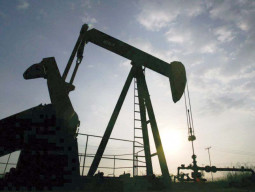
As confusion reigned over the interpretation of an international tribunal’s ruling on the Kishanganga Dam being built on the Indian side of the Line of Control, Water and Power Minister Naveed Qamar tried to portray the decision as “a victory for Pakistan”.
Referring to the diametrically opposing interpretations of the ruling on Saturday by the Netherlands-based Court of Arbitration being run in Indian and Pakistani newspapers, Qamar asked the Pakistani media to ignore the Indian newspapers’ view on the matter, as they have been trying to downplay the significance of the decision.
In an address to workers of the Islamabad Electric Supply Company (Iesco), Qamar reiterated Islamabad’s stance that the Court of Arbitration’s order meant that India had to stop construction on the project. In a press release on Saturday evening, the government had said that the court’s ruling meant that any Indian construction activities now would be “at their own risk”.
“We believe that interim order points out that CoA has advised India to stop work on the dam till the final decision,” he said. “After the detailed decision is delivered, we will examine it with our legal team.”
“India will have to demolish the dam structure if the final verdict denied Indian right of waters on River Neelum,” he added.
Power tariff hikes
The minister also appeared to be preparing the public for a move towards a more market-oriented system of determining prices for electricity in the country, pointing out that the government had no control over international commodity prices such as oil, which are frequently the single biggest cause of tariff increases.
“We have no control over increase in power tariff on account of fuel adjustment,” said the minister.
Qamar was referring to a recommendation by a special cabinet committee on energy – of which he is a member – to raise power tariffs across the country by an average of 12% over the current fiscal year. “However, no final decision has been taken on gradual increase in power tariff,” he said.
Among other recommendations of the committee include a proposal to reform the power sector, by making the state-owned power distribution companies more professional and better-managed.
Qamar said that the Pakistan Electric Power Company (Pepco) – the firm created by the government to manage the finances of the power sector – would be dissolved by October 30 as part of the reform process.
Diamer-Bhasha Dam
Qamar also denied that the United States had refused to finance part of the construction of the Diamer-Bhasha Dam, despite news in recent days that the Washington had ruled out all financial assistance to Islamabad until the government takes action against militants based in North Waziristan.
“The matter was taken up at the recent Pak-US energy dialogue where US representatives informed us that they will take up the issue of funding before the Congress for decision,” he said, adding that the US has already disbursed funds under the Kerry-Lugar Act for Pakistan’s power sector.
Published in The Express Tribune, September 27th, 2011.



1731655243-0/BeFunky-collage-(61)1731655243-0-165x106.webp)













COMMENTS (2)
Comments are moderated and generally will be posted if they are on-topic and not abusive.
For more information, please see our Comments FAQ